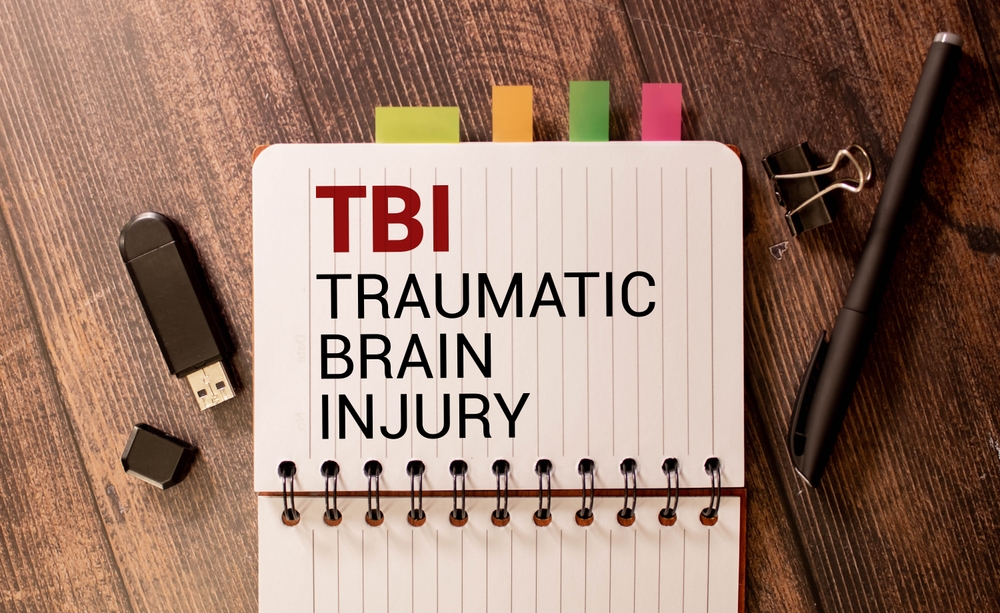Traumatic brain injuries (TBIs) represent some of the most devastating and life-altering conditions a person can face. Unlike a broken bone that heals predictably, TBIs can fundamentally change who you are, affecting everything from your ability to work and care for your family to your personality and cognitive function. When someone else's negligence causes your brain injury, the path to recovery becomes even more challenging as you find yourself battling not just your injury but also insurers determined to minimize your claim. Fighting the insurance company after a TBI significantly benefits from hiring a qualified lawyer.
If you or a loved one suffered a traumatic brain injury due to another party's actions, scheduling a free consultation with a compassionate Orlando traumatic brain injury attorney is your first step toward justice. They will carefully review your claim and strategize a tailored legal argument designed to help you recover the full compensation you deserve for your injuries and losses.
What Causes Traumatic Brain Injuries?
Traumatic brain injuries occur when external forces damage the brain, either through direct impact or rapid acceleration and deceleration that causes the brain to move violently within the skull. While some accidents result in obvious head trauma, many TBIs happen without any visible signs of injury, making them particularly dangerous and often underdiagnosed initially. Cases of negligence that TBI lawyers investigate include the following:

- Car accidents
- Truck accidents
- Motorcycle collisions
- Pedestrian accidents
- Bicyclist accidents
- Defective products
- Slip and falls
- Premises liability (injured due to a hazardous condition on someone's property)
Understanding the cause of your TBI becomes essential when pursuing compensation, as it helps determine which parties may be liable for your injuries. An attorney experienced in brain injury cases will investigate all potential sources of fault, ensuring that every liable party is held accountable for their role in causing your trauma. Whether your injury resulted from a single moment of negligence or a series of safety failures, legal representation can make all the difference between receiving adequate compensation and being left to manage the overwhelming costs of your recovery alone.
Different Types of TBIs
Medical professionals classify traumatic brain injuries based on their severity and the specific areas of the brain affected, with each type presenting unique challenges for both treatment and legal recovery. Understanding these classifications helps both medical teams and legal advocates develop appropriate strategies for addressing the full scope of your injury's impact:
- Mild TBI/Concussion
- Moderate TBI
- Severe TBI
- Penetrating TBI
- Closed Head Injury
- Coup-Contrecoup Injury
- Diffuse Axonal Injury
Each type of brain injury requires specialized medical care and presents unique legal challenges when pursuing compensation. Insurers typically attempt to minimize claims by arguing that certain types of traumatic brain injuries (TBIs) are less severe than others. However, an experienced lawyer understands that even "mild" brain injuries can have devastating long-term consequences. Your attorney will work with medical professionals to properly document your specific type of injury and its projected impact on your future, ensuring that insurance companies cannot downplay the severity of your condition.
Why Do Insurance Companies Push Back on TBI Claims?
Insurance companies resist TBI claims because brain injuries often result in some of the highest settlement values in personal injury law, with costs that can extend for decades into the future. Unlike broken bones or cuts that heal within months, traumatic brain injuries frequently require lifelong medical care, rehabilitation, and support services that create enormous financial liability for insurance providers.
Additionally, many TBI symptoms are invisible and subjective, giving insurance companies opportunities to argue that claimants are exaggerating their injuries or that symptoms are unrelated to the original accident.
Tricks Insurance Companies Use to Minimize TBI Settlements
Insurers employ sophisticated strategies to reduce their financial responsibility on TBI claims, often taking advantage of injured victims who are struggling with cognitive impairments and emotional challenges. Fighting the insurance company after a TBI means understanding these tactics and effectively navigating them. An attorney recognizes and strategizes against the following tactics:

- Requesting Recorded Statements: Adjusters ask leading questions designed to get accident victims to downplay injuries or admit fault. Your words can be taken out of context and used against you later in the claims process.
- Pushing for Quick Settlements: They offer low amounts before you understand the full extent of your injuries. Brain injury symptoms often develop gradually, making early settlement offers particularly dangerous for your long-term financial security.
- Disputing Medical Necessity: Insurers might dispute the necessity of specific treatments or diagnostic procedures. They often deny coverage for advanced or specialized care, even when it can significantly enhance your healing and overall well-being.
- Surveillance Tactics: Investigators may follow accident victims or monitor social media for evidence to contradict TBI claims. Even innocent activities can be misrepresented to suggest you are less injured than reported.
- Independent Medical Examinations: These require evaluations by doctors who frequently work with insurance companies. These examinations often minimize your symptoms and may not account for the full complexity of brain injuries.
- Delaying Strategies: Extending claim processing times is designed to pressure you into accepting lower offers. The financial stress from healthcare bills and lost income can force injured victims into unfavorable settlements.
- Pre-Existing Condition Claims: Insurance companies often argue that current symptoms are a result of previous injuries or medical conditions. They may demand extensive medical records to find any excuse to reduce their liability for your current injuries.
Understanding insurance tricks empowers you to avoid common pitfalls that can compromise the value of your claim. An experienced brain injury lawyer will handle all communications with insurers, protecting you from these manipulative strategies while building a strong case that accurately reflects the true impact of your injuries on your life and future.
How Much Is a TBI Worth?
Determining the value of a TBI claim requires careful analysis of your current and future damages. Brain injuries often create lifelong consequences that extend far beyond initial medical treatment. Courts recognize that TBI victims deserve compensation that addresses not only their immediate losses but also the long-term impact on their ability to work, maintain relationships, and enjoy life.
Damages Affecting the Value of Your TBI Claim
Brain injury cases involve complex damage calculations that must account for both measurable economic losses and the intangible ways that your injury has changed your life. Experienced attorneys work with medical professionals, economists, and life care planners to ensure that all categories of damages are appropriately evaluated and included in your claim, including:
- Current and future medical expenses
- Rehabilitation costs
- Income losses
- Diminished earning capacity
- Physical pain and suffering
- Emotional distress
- Diminished quality of life
- Loss of enjoyment of life
- Scarring and disfigurement
- Disability and permanent impairment
- Loss of consortium (companionship, physical intimacy)
Accurate damage valuation requires understanding the immediate and long-term consequences of your specific brain injury, as no two TBIs affect victims in exactly the same way. Your attorney collaborates with medical professionals and economic professionals to create a comprehensive picture of how your TBI will impact every aspect of your life, ensuring that insurance companies cannot minimize the true scope of your losses through incomplete damage calculations.
Additional Potential Sources of Compensation
Beyond standard liability insurance coverage, you may have access to multiple insurance policies that can provide additional recovery for extensive damages. Identifying all available sources of compensation becomes particularly important in severe TBI cases where damages often exceed standard policy limits, leaving victims with inadequate resources for their long-term care needs. Your TBI lawyer can evaluate:
- Personal Injury Protection (PIP) covers immediate medical expenses and lost income regardless of fault.
- Uninsured/Underinsured Motorist Coverage (UM/UIM) protects you when the responsible party lacks adequate insurance.
- Other Insurance Policies that may be accessible are homeowners' insurance, umbrella policies, and workers' compensation coverage.
Maximizing your recovery often requires pursuing claims against multiple insurance policies simultaneously, as brain injury treatment costs frequently exceed what any single policy can provide. A TBI attorney will identify all potential sources of compensation and coordinate claims to ensure you receive the maximum possible recovery without jeopardizing any individual claim. Insurance companies may attempt to shift responsibility to other policies, but proper legal representation ensures that all available resources are utilized effectively for your benefit.
Why You Need a Lawyer When Fighting the Insurance Company After a TBI
Brain injury cases present unique legal and medical complexities that require extensive knowledge and experience to handle effectively. Insurance companies employ teams of lawyers and medical professionals specifically trained to minimize brain injury claims, making it nearly impossible for unrepresented victims to achieve fair compensation. Fighting the insurance company after a TBI is nearly impossible without sound legal representation.
Protecting Your Rights and Interests
Brain injury victims often struggle with cognitive impairments that make it difficult to understand complex legal procedures and insurance company tactics. Your attorney serves as your advocate and protector, handling all communications with insurance companies and ensuring that you do not inadvertently say or do anything that can harm your claim. Legal representation becomes particularly important when you are dealing with memory problems, concentration issues, or other symptoms that can be exploited by insurance adjusters seeking to minimize your claim.
Establishing Liability

Proving that another party's negligence caused your TBI requires a thorough investigation and often involves accident reconstruction, eyewitness interviews, and analysis of physical evidence. Your lawyer will work with investigators and professionals to build a compelling case that establishes how the defendant's actions or failures led to your injuries. Establishing liability becomes particularly challenging in cases involving multiple parties or when insurance companies dispute the cause of your accident.
Documenting and Valuing Damages
Properly documenting the full scope of your brain injury's impact requires coordination with healthcare professionals, rehabilitation specialists, and economic professionals who can testify about your current condition and future needs. Your attorney will ensure that every aspect of your damages is thoroughly documented and presented in a way that clearly demonstrates the extent of your losses to insurance companies and juries. Accurate damage documentation often makes the difference between receiving adequate compensation and being left with insufficient resources for your recovery.
Negotiating With Liable Insurers
Insurance companies usually make low initial settlement offers, hoping that brain injury victims will accept inadequate compensation rather than pursue full recovery through litigation. Your lawyer will negotiate aggressively with insurers, using their knowledge of brain injury case values and insurance company tactics to secure the best possible settlement. Professional negotiation skills become particularly valuable when dealing with adjusters who are trained to minimize claim values through various psychological and legal strategies.
Litigating Your Case (When Applicable)
When insurance companies refuse to offer fair compensation through settlement negotiations, your TBI lawyer must be prepared to take your case to trial and present your claim effectively to a jury. Brain injury litigation requires elaborate knowledge of medical evidence, damage calculations, and courtroom presentation techniques that can help juries understand the profound impact of your injuries. Having an attorney with trial experience makes fighting the insurance company easier, as it ensures they cannot simply refuse reasonable settlement offers, knowing that you lack the ability to pursue your case through litigation.
Contingency Fee Arrangements
Most TBI lawyers work on a contingency fee basis. These arrangements stipulate that you pay nothing unless your lawyer successfully recovers compensation for your TBI. Under these arrangements, your attorney's fees are covered by a percentage of your settlement or court award, allowing you to access experienced legal representation without incurring upfront costs.
Speak to an Experienced TBI Lawyer Today

Fighting the insurance company after a TBI requires the legal knowledge, medical understanding, and negotiation skills that most injury victims simply do not possess, particularly when dealing with the cognitive and emotional challenges that brain injuries create. An experienced TBI attorney will handle every aspect of your case while you focus on your recovery, ensuring that insurance companies cannot take advantage of your vulnerable position.
Schedule your free consultation with a qualified brain injury lawyer today to discuss your case and learn how an Orlando personal injury attorney secure the compensation you need for your recovery and future care.